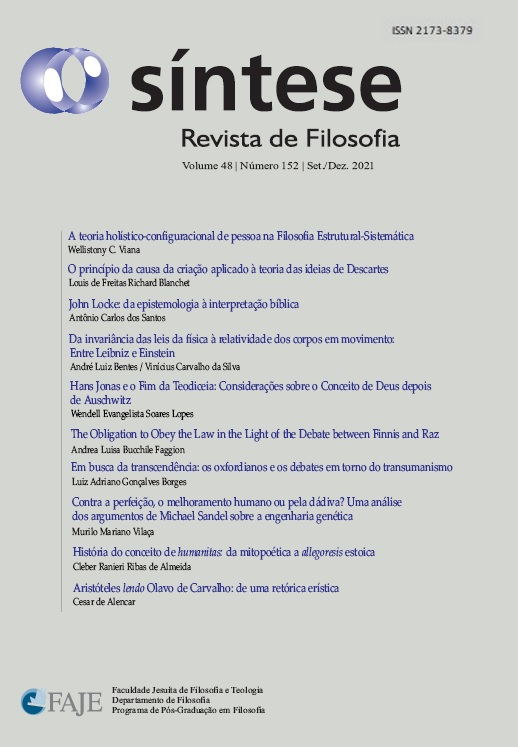ARISTOTLE READS OLAVO DE CARVALHO: ABOUT ERISTIC RHETORIC
DOI:
https://doi.org/10.20911/21769389v48n152p841/2021Abstract
This paper suggests an interpretation of the conception of discourse that can explain and justify Olavo de Carvalho’s textual and media performance. Its starting point is Carvalho’s own work on the Theory of the Four Discourses, which he claims is Aristotle’s. After demonstrating that it is decidedly not a valid interpretation of Aristotelian thought, we found necessary to consider Carvalho’s work as a programmatic content of his own proposal on the use of discourse for political purposes, which we call eristic rhetoric. His intention is to show that knowledge and the free debate of ideas cannot escape the persuasive logic of eristic rhetoric, for which what counts is to win the debate, without needing to be right. Carvalho’s intention is confirmed by the comparison with other works of his concerning the type of exercise of power that he clearly supports. Such a comparison clearly demonstrates his satisfaction in hindering the debate in two ways: by creating in his readers the impression they possess the truth, placing them above intellectuals of all kinds; and thereby leading them to adopt a single opinion, characterized by verbiage, that reduces them to mere atoms of the social body. The effect of this rhetoric of contention is to imbue his students with a political mission that fosters hatred of communism and of the truth. An authentic debate does not originate from the closure in oneself but from the dialogue between those interested in knowledge.


















